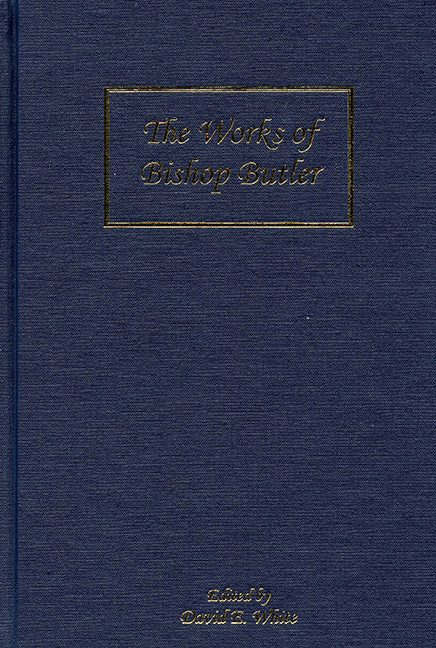Book contents
- Frontmatter
- Contents
- Acknowledgments
- Introduction
- A Note on the Text
- Part One Correspondence with Samuel Clarke
- Part Two Fifteen Sermons Preached at the Rolls Chapel
- Part Three The Analogy of Religion, Natural and Revealed, to the Constitution and Course of Nature
- Part Four Six Sermons Preached upon Public Occasions
- Part Five The Durham Charge
- Part Six Fragments
- Editorial Notes
- Bibliography
- Index
Part Three - The Analogy of Religion, Natural and Revealed, to the Constitution and Course of Nature
Published online by Cambridge University Press: 11 May 2017
- Frontmatter
- Contents
- Acknowledgments
- Introduction
- A Note on the Text
- Part One Correspondence with Samuel Clarke
- Part Two Fifteen Sermons Preached at the Rolls Chapel
- Part Three The Analogy of Religion, Natural and Revealed, to the Constitution and Course of Nature
- Part Four Six Sermons Preached upon Public Occasions
- Part Five The Durham Charge
- Part Six Fragments
- Editorial Notes
- Bibliography
- Index
Summary
[1] If the reader should meet here with any thing, which he had not before attended to, it will not be in the observations upon the constitution and course of nature, these being all obvious; but in the application of them: in which, though there is nothing but what appears to me of some real weight, and therefore, of great importance; yet he will observe several things, which will appear to him of very little, if he can think things to be of little importance, which are of any real weight at all, upon such a subject as religion. However, the proper force of the following treatise, lies in the whole general analogy considered together.
[2] It is come, I know not how, to be taken for granted, by many persons, that Christianity is not so much as a subject of inquiry; but that it is, now at length, discovered to be fictitious. And accordingly they treat it, as if, in the present age, this were an agreed point, among all people of discernment; and nothing remained, but to set it up as a principal subject of mirth and ridicule, as it were by way of reprisals, for its having so long interrupted the pleasures of the world. On the contrary, thus much, at least, will be here found, not taken for granted, but proved, that any reasonable man, who will thoroughly consider the matter, may be as much assured, as he is of his own being, that it is not, however, so clear a case, that there is nothing in it. There is, I think, strong evidence of its truth; but it is certain no one can, upon principles of reason, be satisfied of the contrary. And the practical consequence to be drawn from this, is not attended to, by every one who is concerned in it.
May 1736.
[1] Probable evidence is essentially distinguished from demonstrative by this, that it admits of degrees; and of all variety of them, from the highest moral certainty, to the very lowest presumption.
- Type
- Chapter
- Information
- The Works of Bishop Butler , pp. 147 - 314Publisher: Boydell & BrewerPrint publication year: 2006

